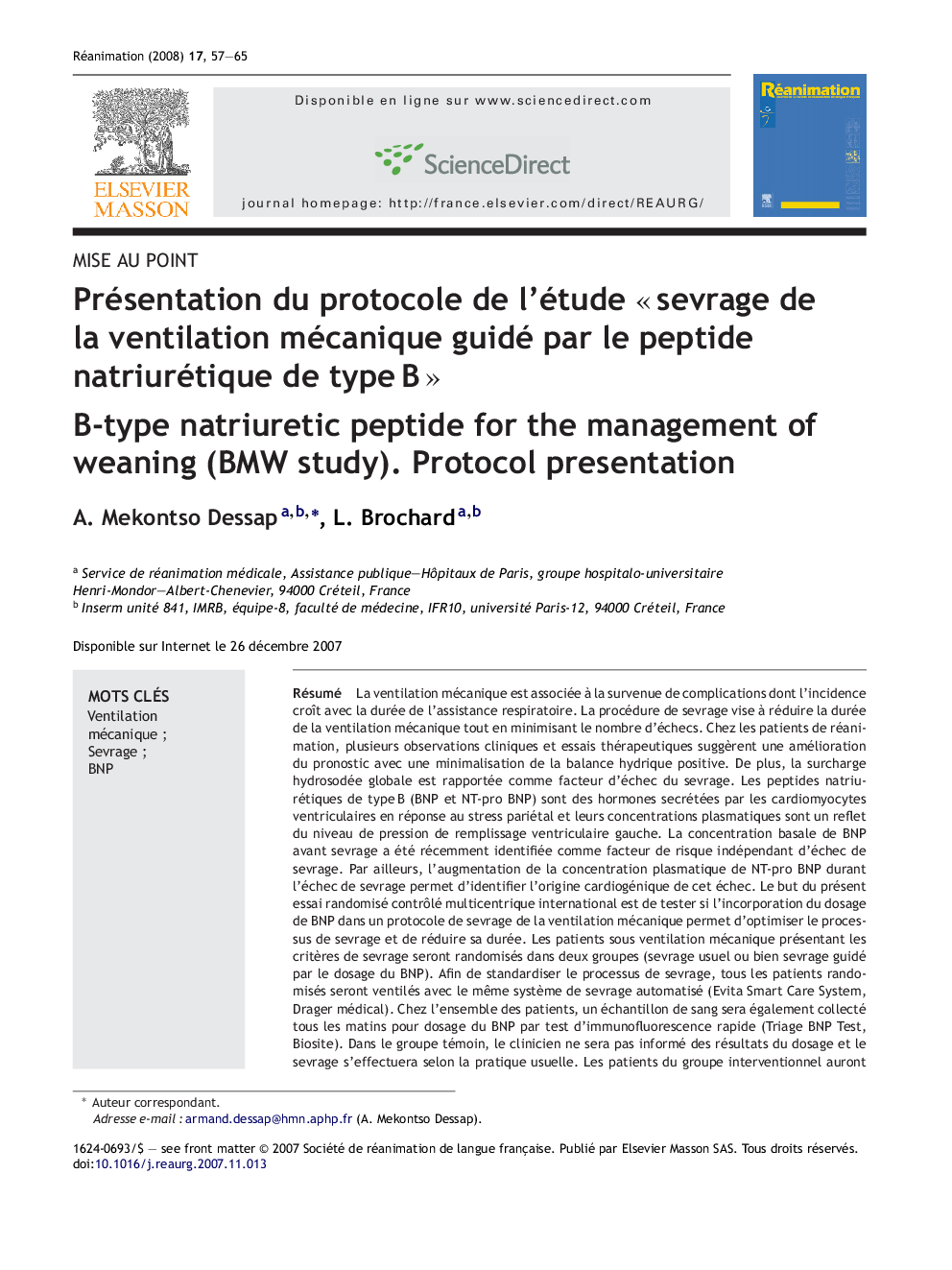| Article ID | Journal | Published Year | Pages | File Type |
|---|---|---|---|---|
| 2613276 | Réanimation | 2008 | 9 Pages |
Abstract
Mechanical ventilation may give rise to complications with an incidence that increases with the duration of respiratory support. The purpose of the weaning procedure is to reduce the duration of mechanical ventilation without incurring a substantial risk of failure. Several clinical findings and clinical trials have suggested that the prognosis of ICU patients may be improved by minimizing the positive fluid balance. In particular, a global fluid overload could lead to weaning failure. B-type natriuretic peptides (BNP and NT-pro BNP) are hormones secreted by ventricular cardiomyocytes in response to increased wall stress and their plasma levels are correlated with left ventricular filling pressures. In patients undergoing weaning from mechanical ventilation, the baseline BNP levels before weaning were found to be an independent risk factor for weaning failure. In addition, the rise in NT-pro BNP levels during weaning failure helps to determine the cardiovascular origin of weaning failure. The purpose of this international, multicenter, controlled, randomized trial is to test if the incorporation of a BNP assay in a mechanical ventilation weaning protocol helps optimize the weaning process and reduce the duration of ventilatory weaning period. Patients on mechanical ventilation presenting weaning criteria will be randomly assigned to two groups (usual physician-directed weaning or weaning guided by BNP assay). In order to standardize the weaning process, patients will be ventilated with an automatic computer-driven weaning system in the two groups (Evita Smart Care System, Drager medical). A blood sample will be collected from all patients every morning for BNP assay by the rapid immunofluorescence test (Triage BNP Test, Biosite). In the control group, the clinician will not be informed about the assay results and weaning will be carried out according to usual practices. Patients in the intervention group will receive diuretics according to a clinical practice algorithm based on plasma BNP levels and a fluid intake restriction. The primary endpoint for the two groups will be duration of weaning from mechanical ventilation. The number of patients to be included in the study is 375 (300 randomizations) recruited in ten ICUs.
Related Topics
Health Sciences
Medicine and Dentistry
Emergency Medicine
Authors
A. Mekontso Dessap, L. Brochard,
